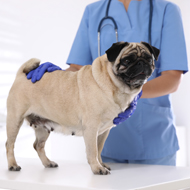Manufacturers of equine feed are signing up to a new code produced by the British Equine Trade Association (BETA).
Move to eliminate naturally occurring prohibited substances from feed
A code to reducing the risk of competition disqualification from naturally occurring banned substances, has been produced by the British Equestrian Trade Association (BETA).
Its Universal Feed Assurance Scheme (UFAS), Naturally Occurring Prohibited Substances (NOPS) Code is designed for manufacturers of compound feeds.
A Feed materials Assurance Scheme (FEMAS) NOPS Code is a sister scheme designed for raw material and straights providers.
Both schemes are administered by the Agricultural Industries Confederation (AIC). Companies are audited through the AIC schemes as well as being bound by additional requirements run by BETA as part of the BETA UFAS NOPS code.
Feeds and supplements conforming to the new codes will carry logos to reassure owners and trainers of the stringent quality management procedures that have been undertaken by manufacturers.
Naturally occurring prohibited substances include:
• Caffeine
• Theobromine
• Theophylline
• Morphine
• Hyoscine
• Hordenine
• Atropine
• Nicotine
BETA says that historically the principal risk has come from caffeine and theobromine. More recently however, there has been several incidences of morphine contamination of feed, coinciding with the cultivation of morphine poppies in UK.
The British Horseracing Authority’s rules of racing and International FEI rules for competition state a no threshold policy for naturally occurring substances that could affect performance, with the exception of theobromine.
While the risks are low, the consequences of a horse testing for a NOP can be disastrous with loss of prize money, value, earnings, prestige, owners, trainers, riders, feed/supplement manufacturers and team placings all jeopardised.
The new BETA codes require feed manufactures to assess the risk of NOPS contamination from sourcing, to storage, to transport and manufacturing.
The Code has been endorsed by the British Horseracing Authority (BHA) and the National Trainers Association.
Professor Tim Morris, Director of Equine Health and Welfare of the British Horseracing Authority said: “By significantly reducing the risk of NOPS, the new code provides important protection for those competing or racing under rules.
"The fact that most of the UK’s major feed manufacturers have already agreed to comply with the code confirms its viability as a workable verification system.”
The endorsement of the British Equestrian Federation (BEF) is currently being sought and it is hoped the FEI may also back the code in the future.
For more visit www.beta-uk.org
Image by Softeis

.jpg)





 The latest
The latest 
